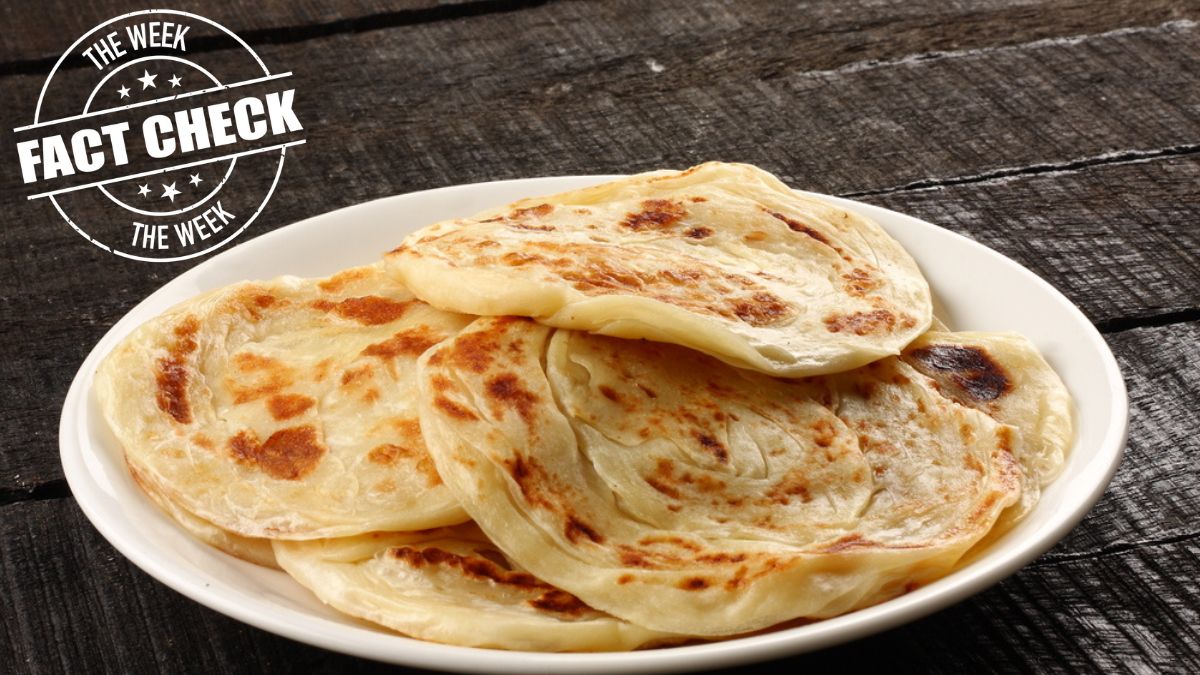CLAIM: Refined wheat flour (maida) is not unhealthy if consumed with fruits, vegetables, and protein.
FACT: Expert opinions and studies agree that maida is nutritionally inferior and linked to health risks like blood sugar spikes, nutrient deficiencies, and increased risk of cardiovascular issues. Small quantities, however, may not cause significant harm, so limiting intake is crucial for better health.
A YouTube Short by @diettubeindia, featuring dietitian and YouTuber Bhawesh Gupta, has gained widespread traction with over 5,76,000 views for claiming that maida (refined flour) is not inherently harmful if consumed in moderation and paired with a balanced diet.
“Some [people] say it (maida) is bad because it is refined or processed. By that logic, white rice is also processed, and you should only eat brown rice. Except for fruits, almost everything we eat is processed to some extent,” Gupta says.
The main issue with maida, according to him, is that most foods made with maida, like bhature or desserts, are often deep-fried and loaded with sugar and sodium. “This hyper-palatable combination can be unhealthy,” he admits.
Gupta, however, contends that maida itself is not bad, if one doesn’t have a wheat allergy or intolerance and pairs it properly with fruits, vegetables, and protein.
He further dismisses concerns about maida’s lack of fibre, asking rhetorically: “Some people argue that maida lacks fibre—well, are you planning to eat only maida all day long and nothing else?”
What are the facts?
Medical experts, however, don’t find any merit in Gupta’s claim.
“Refined flour is certainly unhealthy because it spikes your blood sugar level,” Divya Gandhi, a dietitian, clinical nutritionist, and lifestyle coach, told the First Check.
“If we add some portion of protein to it, the spike will be slightly less. It won’t increase insulin levels as drastically, and digestion will improve. But that doesn’t make it healthy. It just makes it slightly less harmful,” explained Gandhi, who runs a private clinic at Ashok Vihar in New Delhi.
She clarified that refined flour is digested faster than whole wheat flour, which contains fibre. “Foods that digest quickly spike blood sugar levels, which makes them unhealthy in comparison to fibre-rich foods that take longer to digest,” she said.
The refining process, Gandhi pointed out, strips away most of the essential nutrients such as fibre, vitamins, and minerals, leaving behind primarily starch with minimal nutritional value, making it nutritionally inferior to whole wheat flour like atta.
Scientific research largely aligns with Gandhi’s claims, underlining the adverse health outcomes linked to consuming refined grains.
The 2015 Dietary Guidelines Advisory Committee (DGAC) in the US recommended that “to improve dietary quality, the US population should replace most refined grains with whole grains.” This recommendation was reiterated in the dietary advice of the American Heart Association.
The picture, however, is nuanced, as some studies have found that having refined grains in smaller quantities doesn’t lead to health complications, unlike the consumption of red and processed meat, as this study makes clear.
“When evaluated as a distinct food category, 11 meta-analyses of prospective cohort studies, which included a total of 32 publications with data from 24 distinct cohorts, demonstrated that refined grain intake was not associated with all-cause mortality, T2D (Type 2 Diabetes), CVD (cardiovascular disease), coronary heart disease (CHD), stroke, hypertension, or cancer,” the study points out.
The results apply to the consumption below “6–7 servings/d (1 serving = 30 g).“
However, the study calls for the need for “future research needs to better define refined grain intake to distinguish between staple grain foods and indulgent grain foods —- with regard to determining the benefits of whole grains compared with refined grains.”
Another study spanning 21 countries found that “...higher intake of refined grains was associated with higher risk of total mortality and major cardiovascular events.”
“Globally, lower consumption of refined grains should be considered,” the study advises.
The takeaway is that while refined grains can be consumed in moderation as part of a balanced diet, and a lower intake can be beneficial for overall health.
This story is done in collaboration with First Check, which is the health journalism vertical of DataLEADS.



